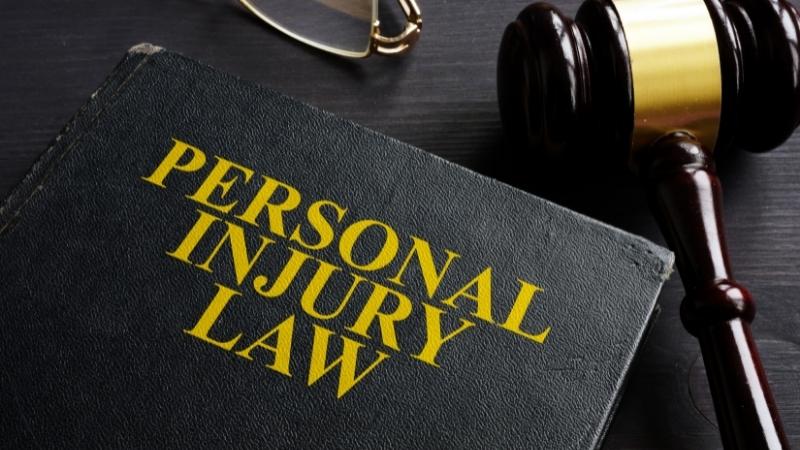Personal injury lawyers are civil defense lawyers who defend clients – typically referred to as claimants – who claim physical or emotional damage as a result of another entity’s, person’s, company’s, organization’s, or government agency, negligence or carelessness. Tort law is the field where personal injury lawyers work.
This branch of law focuses on financial or nonfinancial damages for civic or personal wrongdoings or damages. Defamation and initiatives in fraudulent misrepresentation or in contract breach against anyone’s reputation, interests, or assets fall under this category.
Despite the fact that personal injury lawyers are licensed professionals in all areas of law, they typically handle issues involving tort law, including workplace injuries, faulty goods, fall and slip accidents, traffic accidents, and other related mishaps.
Personal injury lawyers help their clients get compensated for their losses. Loss of earnings potential, incapacity to execute usual duties, suffering, and discomfort are all examples of these damages. They also cover any unexpected costs, such as losing companionship, legal expenses, emotional pain, and lawyers’ fees.
Clients will be protected from being exploited by insurance providers and the judicial system, according to the lawyer. Personal injury lawyers are repeatedly alluded to be trial lawyers, despite the fact that the majority of their matters are settled prior to a full trial.
Should you consult a personal injury lawyer if you were injured in a vehicle accident, by faulty goods, by medical negligence, or with another type of situation? Yes, engaging an experienced lawyer can allow you to recover the majority, but not all, of the expenses associated with a personal injury occurrence.
Having an insurance provider to settle your case or filing a lawsuit can assist you to finance medical costs and lost productivity earnings as a result of your injury. The inevitable question is how you should communicate to a personal injury lawyer now that we have managed to contact an expert lawyer.
This is a crucial question because how you communicate with a personal injury lawyer can have a significant impact on the result of a claim or civil litigation. Clients usually have reservations about speaking with their chosen personal injury lawyers at first, owing to the legal language they’ve heard from other lawyers. When you talk to them, they will more likely to talk to you using simple to understand language rather than using complicated terms which are very helpful.

How do you start preparing for your first consultation with a lawyer?
Preparing for the initial meeting is the first step in knowing how to speak with a personal injury lawyer. The majority of personal injury lawyers offer free initial consultations to their clients, which can last anywhere from 15 minutes to an hour. The length of the initial meeting is determined by the sort of personal injury claim and the case’s intricacy.
You should have a clear idea of what you really want to express
If you do not know whatever you want to say, it is difficult to talk to anyone. This is certainly relevant when meeting with a lawyer to discuss your claim. The lawyer opposite to you is assessing you in the same way that you are assessing the lawyer. When meeting with any lawyer for the very first time, it is a smart option to present a version of what happened that is supported by the evidence.
You should bring any proof you gathered at the location of the event, and also the formal police report detailing your version of what happened. The lawyer with whom you are speaking will need to see you deliver the facts in this case without fumbling.
If your case proceeds to a civil trial, your ability to present a coherent and great narrative will indicate whether you will be a reliable witness throughout a civil trial or deposition.
The best strategy is, to be honest…
You desire to deal with a lawyer who is trustworthy and has a reputation for integrity. You are subject to the same regulations. If you overstate how a personal injury occurrence occurred, you will not be able to acquire a lawyer’s faith.
When a potential client cheats about how quickly he or she was driving before colliding with some other car, this is a good example of false data. “Oh, I was just going 30 miles an hour,” you say, although the relevant evidence at the site showed you were going considerably faster.
Lawyers with advanced training can tell if a potential client is concealing something. Prepare to tell the truth about the occurrence that led to your damages when you visit a personal injury lawyer for the first time.
Maintain your calmness
“It is not what you say, but how you have said it that counts,” as the old saying goes. What you tell a personal injury lawyer is important. it is just as crucial, though, to express it quietly and confidently. Any lawyer you encounter for the very first time will evaluate your strength to take the stand as a testimony and strengthen your claim.
Do not whine about how an insurance provider has treated you unfairly. it is something the lawyer on the other side of the table already understands. A personal injury lawyer can give you an objective analysis of your circumstances. Maintain your composure and focus on the facts, and you must keep up appearances sitting on the other side of the lawyer.
Inquire about details
When researching your personal injury lawsuit, you should think that coming across a lot of legal jargon. Many situations, for instance, require a Prayer for Relief. It appears to be a last-ditch effort by a claimant who has lost an insurance claim dispute. In reality, “Prayer for Relief” is merely a fancy way of stating “I want a huge amount of money.”
The key is that whenever anything puzzles you when you visit your personal injury lawyer for the very first time, you need to seek an explanation. Perhaps you’re unsure about the limitation period for launching a civil action, or you’re unsure what carelessness means. When anything does not sound right, you must start asking questions for whatever reasons.”There are no foolish questions,” as our teachers used to say in elementary school.

Throughout a phone session, how should you communicate with a lawyer?
It’s conceivable that you won’t want to visit a personal injury lawyer face to face. Because of the COVID-19 epidemic, lawyers arranged initial telephone appointments with clients for the majority of 2020. Does this imply that you must be ready for a phone appointment similarly to what you would do for an in-person meeting?
When you visit with a personal injury lawyer face to face you should bring all relevant documents with you. You should have the same papers near to you when on the telephone for quick review.
The key points will be required by your lawyer:
- Your injuries’ severity
- You have a fair probability of achieving a full recovery.
- Your doctor’s contact info
- The number of days you’ve been absent from work
- Your monthly income
- The incident’s timeline in detail
- The amount of money you’ll have to pay for your medical costs
- If you qualify, a description of your disability benefits will be sent.
The main distinction between such a phone appointment and a face-to-face session is this: When discussing your issue over the telephone, you should concentrate more on hearing. Hearing what your lawyer has to say face to face is considerably simpler.

Some inquiries to make of a lawyer
Let’s go through some crucial questions you should ask your lawyer now we have developed an effective format for talking to a personal injury lawyer. These questions will help you to get insights into a lawyer regarding your case and help you to decide if you should hire him/ her not. Whether the meeting is in person or over the telephone, you should ask these questions during the initial session.
What is your fee structure?
Whereas most personal injury lawyers work on a conditional fee model, you should double-check with the lawyer you’re considering hiring. A lawyer who works on a conditional basis accepts a percent of a lawsuit or the just compensation given in a legal lawsuit. In the case of personal injury lawyers, contingency fees often range from 20% to 40%. The quantity taken from claims or settlements is determined by the case’s intricacy.
Have you handled any cases like mine before?
Personal injury lawyers cover a wide array of matters. Do not presume that your lawyer has handled a case comparable to yours. This inquiry not only indicates whether such a lawyer has worked on a comparable issue before, but it should also motivate the lawyer to disclose the specifics of previous cases.
If you were injured as a result of any faulty goods, you might wish to deny a personal injury lawyer’s offer to take your case if you were injured in a fall and slip accident.
Who is in charge of my case?
A senior partner from a personal injury firm may be sent to speak to a potential client. The client meets with a less skilled lawyer after the initial appointment. Do not presume that the lawyer next to you will be your legal adviser for the duration of the case. Usually, the personal injury lawyer in a law firm with whom you first consult will be the one who represents you till your matter is settled.
How much time do you have available to work on my case?
Many lawyers accept too many clients, lowering the efficiency of their legal assistance. Request a meeting with the lawyer to discuss how much effort and time the lawyer will be capable of committing to your case beginning today. Starting the legal report as easily as possible is a key to winning an insurance claim or a civil action.
What is the length of time it takes for a matter like this to be cleared up?
A variety of things influence the length of personal injury litigation. All you are looking for is an estimation of how long it will take your lawyer to handle an insurance claim or prosecute a civil action.
Do you believe my case will be on the trial?
This inquiry is intended to establish how committed a lawyer is to secure the just compensation you wish. You do not want to choose a personal injury lawyer who believes your claim should be settled before appearing in court. Your personal injury lawyer should be ready to defend a personal injury claim on your behalf. “How many civil suits have you managed to win?” is a good follow-up inquiry.
What is the worth of my case?
A personal injury lawyer ought to be able to give you an estimation of how much your claims are worth after evaluating your expenses and earning records. The cost of a personal injury case or lawsuit is determined by factors such as responsibility and pre-existing medical conditions.
Is it okay if I communicate with a previous client?
Client testimonies and evaluations can give you some insight into a lawyer’s legal abilities if you have a shortlist of contenders. You must, however, request to talk with at least 2 previous clients. You can anticipate talking with prior customers who had positive outcomes, but sharing their cases with you should give some insights into the lawyer’s capabilities.
It can be pretty hard to get the ideal personal injury lawyer. Learn how to interact with a personal injury lawyer to pave your path to fair recompense smoother. The above writing might help you understand the ways of communicating with your desired lawyer.
Understanding all of those will make your communication easier and will help you to evaluate your lawyer’s proficiency in handling your case and there would be no misinterpretation and misunderstanding between you and the lawyer you are talking to.
